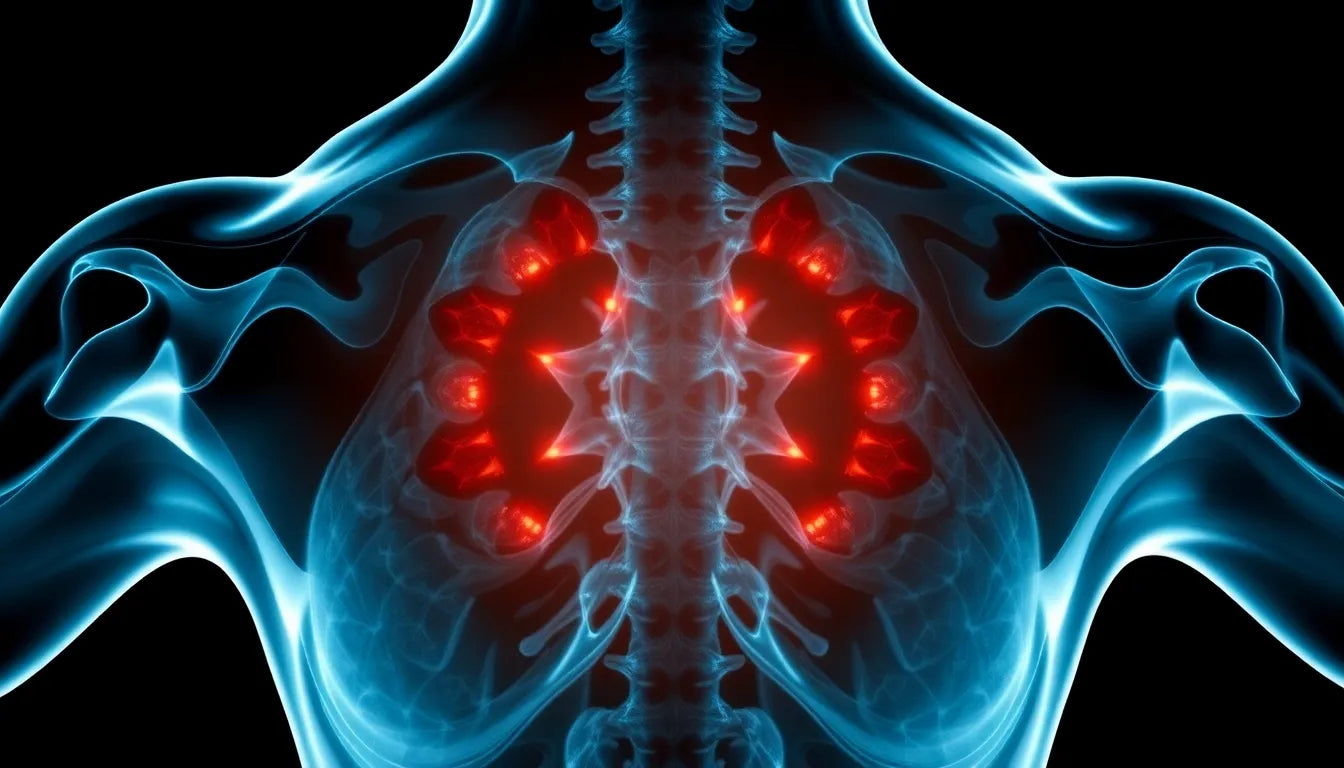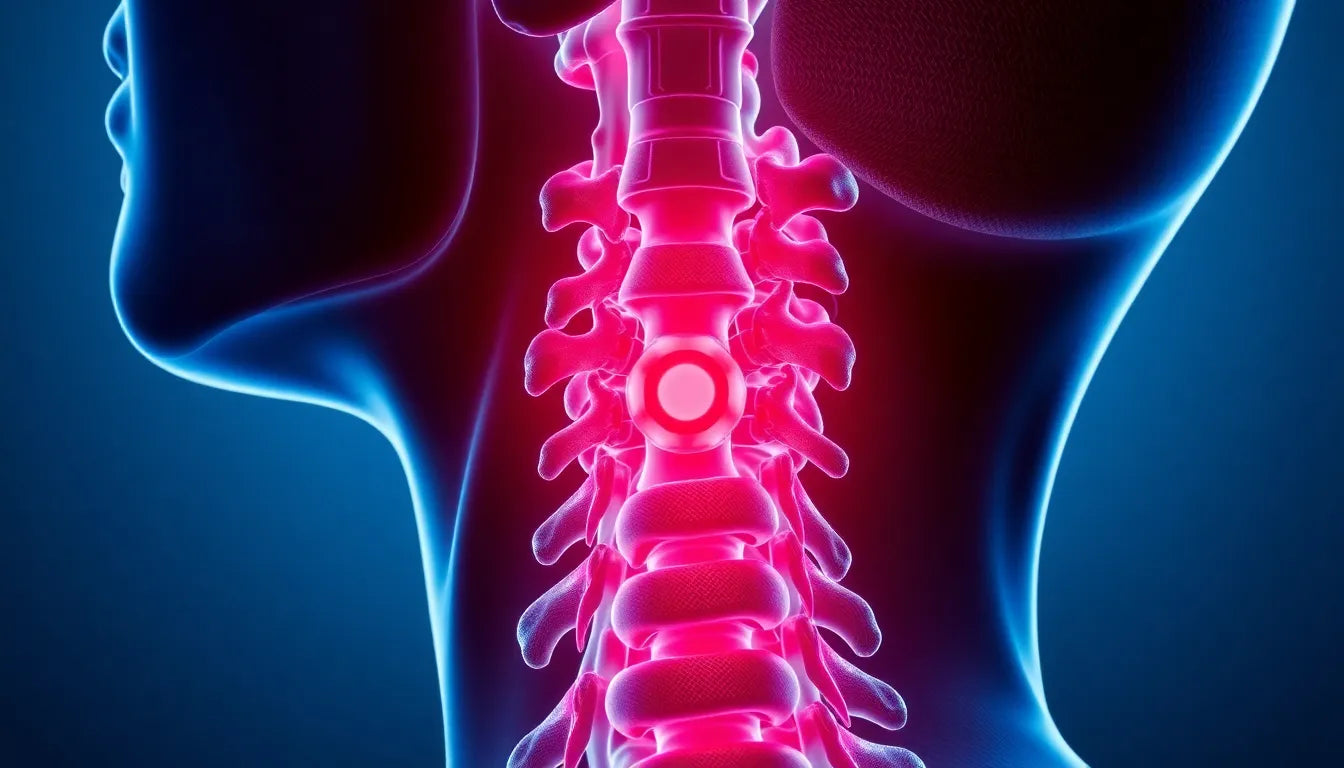Dealing with a herniated disc can be a daunting experience, often accompanied by persistent pain and discomfort. A herniated disc occurs when the soft inner gel of a spinal disc pushes through a tear in its tougher exterior. This can result in pressure on the surrounding nerves, leading to symptoms such as pain, numbness, and weakness, particularly in the limbs. While these symptoms can vary in intensity, they often disrupt daily activities and diminish quality of life.
understanding herniated discs
The spine is composed of a series of bones called vertebrae, cushioned by discs that act as shock absorbers. When these discs become damaged, either through injury or the natural aging process, they can herniate or bulge out of place. This condition is most common in the lower back (lumbar spine) but can also occur in the neck (cervical spine). The resulting pressure on spinal nerves can cause significant discomfort and impair mobility.
Common symptoms of a herniated disc include sharp or burning pain, tingling, and muscle weakness. These symptoms can radiate from the spine to other parts of the body, depending on the location of the herniated disc. For instance, a herniated disc in the lower back may cause pain that extends down the legs, a condition often referred to as sciatica.
chiropractic care as a solution
In recent years, chiropractic care has gained popularity as a non-surgical treatment option for managing herniated disc pain. Chiropractors are trained healthcare professionals who specialize in diagnosing and treating musculoskeletal disorders, particularly those related to the spine. They employ a range of techniques to help alleviate pain, improve function, and enhance overall well-being.
Chiropractic care offers a holistic approach to managing herniated disc symptoms, focusing on restoring spinal alignment and reducing nerve irritation. This method is appealing to many patients who wish to avoid invasive procedures or reliance on medication. By addressing the root cause of discomfort, chiropractors aim to provide long-term relief and improve the quality of life for those suffering from this condition.
As we delve deeper into the role of chiropractors in managing herniated disc pain, we'll explore how their expertise and techniques can offer significant relief. From spinal adjustments to personalized exercise regimens, chiropractors provide a comprehensive approach to treatment that can make a meaningful difference for those affected by this condition.
effectiveness of chiropractic care for herniated discs
While chiropractic care cannot reverse a herniated disc, it offers a valuable approach for managing the symptoms associated with this condition. Chiropractors focus on alleviating pain and improving mobility, which can significantly enhance a patient's quality of life. According to a study published in the Journal of Manipulative and Physiological Therapies, a significant number of patients reported improvement in their symptoms after undergoing chiropractic treatment. The study highlighted that 90.5% of patients experienced improvements within three months, and 88% continued to feel better after one year. These findings underscore the potential of chiropractic care as an effective non-surgical intervention for herniated discs.
common chiropractic treatment methods
Chiropractors employ a variety of techniques tailored to the specific needs of patients with herniated discs. One of the primary methods is spinal manipulation or adjustments. This technique aims to improve spinal alignment, thereby reducing nerve irritability and alleviating pain. By carefully adjusting the spine, chiropractors can help restore proper function and mobility.
Another widely used technique is the flexion-distraction method. This involves the use of a specialized table that gently stretches the spine, helping to relieve pressure on the discs and nerves. This approach is particularly beneficial for patients who may not respond well to traditional spinal adjustments.
Manual therapy and therapeutic exercises are also integral components of chiropractic care for herniated discs. Chiropractors develop personalized exercise regimens to strengthen the muscles supporting the spine, which can help prevent further injury and promote healing. These exercises are tailored to the individual needs of each patient, ensuring a comprehensive and effective treatment plan.
Spinal decompression therapy is another gentle treatment option that chiropractors may use. This technique involves the use of motorized traction to gently stretch the spine, promoting the retraction or repositioning of the herniated disc material. This can help reduce pain and improve function without the need for invasive procedures.
Finally, pelvic blocking treatments utilize cushioned wedges placed under the pelvis to relieve pressure on the discs and nerves. This method is designed to enhance spinal alignment and reduce discomfort associated with herniated discs.
initial assessment process for chiropractic care
The journey to relief from herniated disc pain through chiropractic care begins with a thorough initial assessment. Chiropractors conduct a comprehensive evaluation of the patient's overall spine health, not just the affected area. This holistic approach ensures that all potential contributing factors are considered.
The assessment process includes a detailed review of the patient's medical history and a physical examination to identify any underlying issues. Diagnostic testing, such as X-rays or MRI scans, may be used to gain a clearer understanding of the condition. Chiropractors also assess reflexes, muscle strength, and sensation to determine the extent of nerve involvement and to tailor the treatment plan accordingly.
Determining the suitability of chiropractic care for each patient is a crucial step. Chiropractors take into account the patient's overall health, the severity of the herniated disc, and any contraindications that may affect treatment outcomes. This careful evaluation ensures that chiropractic care is both safe and effective for each individual.
In conclusion, while chiropractors cannot "fix" a herniated disc, their expertise in managing symptoms and improving spinal health can offer significant relief. Through a combination of spinal adjustments, therapeutic exercises, and other tailored treatments, chiropractors provide a comprehensive approach to managing herniated disc pain, helping patients regain their quality of life without the need for surgery or medication.
Contraindications and suitability of chiropractic care
While chiropractic care offers significant benefits for those suffering from herniated disc pain, it is not suitable for everyone. Patients with certain medical conditions may need to explore alternative treatments. For instance, individuals with spinal cancer, advanced osteoporosis, or specific bone abnormalities, particularly along the upper neck, may not be appropriate candidates for chiropractic adjustments. Additionally, those with a high risk of stroke should consult with their healthcare provider before considering chiropractic care. It is crucial to undergo a comprehensive assessment to determine the best course of action tailored to individual health needs.
Comparative analysis of treatment options
When considering treatment for herniated disc pain, patients often weigh the benefits of chiropractic care against conventional methods such as bed rest, pain relievers, steroid injections, and surgery. Chiropractic care is a non-invasive approach that focuses on symptom management and improving spinal health without relying on medication or surgical intervention. In contrast, conventional treatments may offer quicker pain relief but often come with potential side effects or risks associated with surgery. While bed rest and pain relievers can provide temporary relief, they do not address the underlying cause of the pain. Steroid injections may reduce inflammation but are not a long-term solution. Surgery is typically considered a last resort due to its invasive nature and recovery time. Chiropractic care, with its holistic approach, offers a sustainable and effective alternative for many patients.
Prevention strategies and lifestyle modifications
Preventing herniated discs or minimizing their impact involves adopting certain lifestyle changes. Regular exercise, particularly activities that strengthen the core and back muscles, can support spinal health and reduce the risk of disc herniation. Maintaining a healthy weight is also crucial, as excess body weight can place additional strain on the spine. Practicing good posture and ergonomics, especially for those who sit for extended periods, can help prevent spinal issues. Additionally, avoiding repetitive heavy lifting and using proper techniques when lifting objects can protect the spine from injury. Incorporating these strategies into daily life can complement chiropractic care and promote long-term spinal health.
Frequently asked questions
Can a chiropractor make a herniated disc worse?
There is a common misconception that chiropractic care can worsen a herniated disc. However, chiropractors are trained to assess each patient's condition thoroughly and apply treatments that are safe and effective. By using gentle techniques and avoiding high-velocity adjustments on sensitive areas, chiropractors aim to alleviate symptoms without causing further harm.
How long does it take to see results from chiropractic treatment?
The timeline for experiencing results from chiropractic treatment varies depending on the severity of the herniated disc and individual health factors. Many patients report improvements within a few weeks of consistent treatment, but some may require longer to achieve significant relief. The chiropractor will tailor the treatment plan to the patient's needs, which may influence recovery time.
What should I expect during my first chiropractic visit?
During the initial chiropractic visit, the chiropractor will conduct a comprehensive assessment, including a review of medical history, a physical examination, and possibly diagnostic tests like X-rays or MRI scans. This evaluation helps determine the best treatment approach. Patients can expect a discussion about their symptoms, goals, and a proposed treatment plan.
Are there any risks associated with chiropractic care for herniated discs?
While chiropractic care is generally safe, there are potential risks, as with any medical treatment. These risks are minimized through thorough patient assessment and the use of appropriate techniques. Chiropractors are trained to recognize contraindications and adjust their methods accordingly to ensure patient safety.
How often will I need to see a chiropractor for herniated disc pain?
The frequency of chiropractic visits depends on the individual's condition and response to treatment. Initially, more frequent visits may be necessary to manage acute symptoms. As the patient improves, the chiropractor may recommend a maintenance schedule to support ongoing spinal health and prevent recurrence.
Sources
- Oviedo Chiropractic. "Can a Chiropractor Fix a Herniated Disc?"
- Health Central. "Chiropractic Treatment for a Herniated Disc."
- Accident Care Chiropractic. "5 Benefits of Seeking Chiropractic Care for Herniated Disc Pain."
- Delaware Back Pain. "How Can a Chiropractor Help with a Herniated Disc?"
- Lakes Chiropractic. "Chiro for Herniated Disc in Brainerd, MN."
- Waldron Chiropractic. "Herniated disc? Study confirms chiropractic is an effective treatment."
- Barricaid's Blog. "Can a Chiropractor Fix a Herniated Disc?"


















